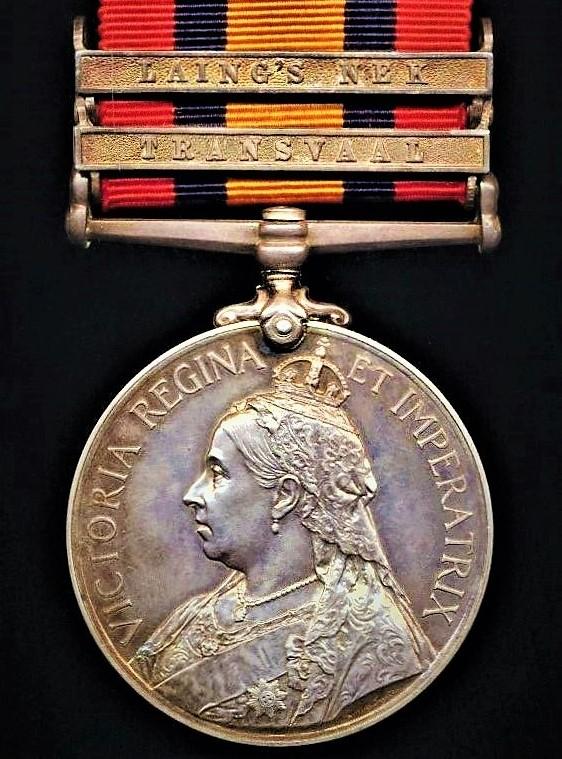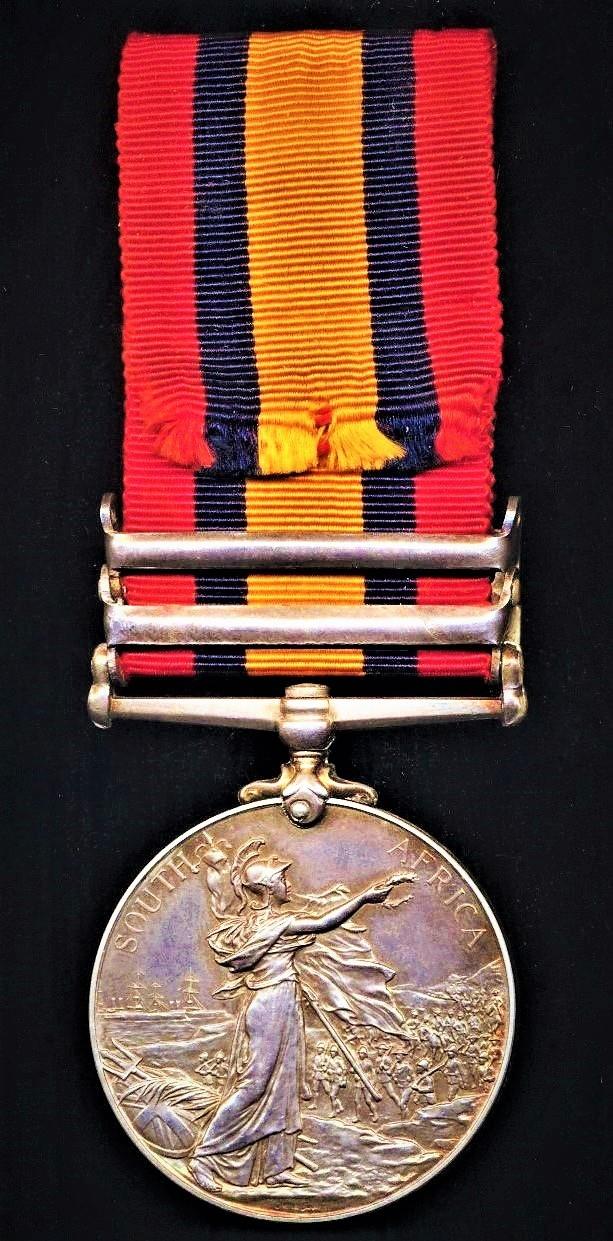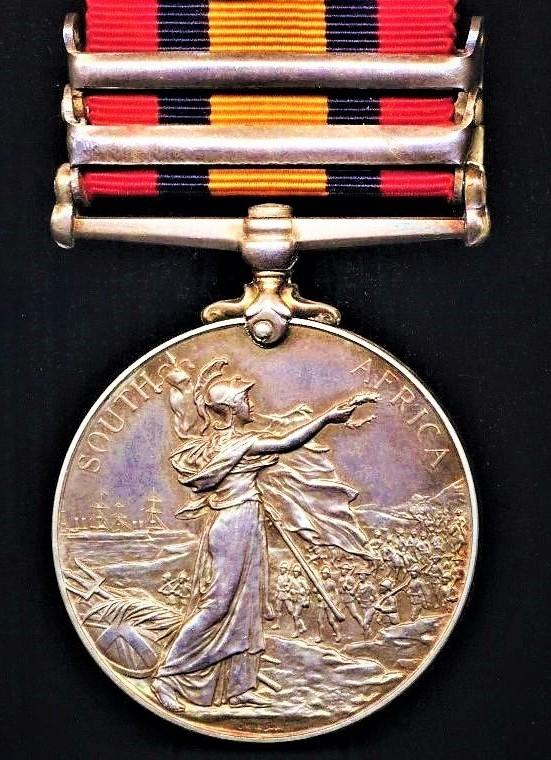Queen's South Africa Medal 1899-1902. Silver issue with 2 x clasps 'Transvaal' & 'Laing's Nek' (982 Tpr: A. C. Wright. Bethune’s M.I.)
Medal Verification: Medal and both clasps confirmed as the recipients only medal entitlement for the South African War, per the respective campaign medal roll of Bethune's Mounted Infantry (ref WO 100/236).
The recipient is identified in the Muster Books of Bethune's Mounted Infantry as Trooper Alfred Charles Wright, who served with the unit between, 2J June 1900 - 13 November 1900
Bethune's Mounted Infantry was raised in Durban, Natal Colony, in October 1899, by Major E. C. Bethune, 16th Lancers, the corps quickly enjoyed success on patrol work. In the period June to November 1900, the 'Bethune's' served under General Buller in the successful campaign to drive the Boer's from Natal Colony, which objective was achieved by the time Trooper Wright took his discharge on 13 November 1900
Alfred Charles Wright, son of Alexander Edward Wright (Tea Planter & Owner, Brunswick Estate, Maskeliya, Ceylon Colony, who had been born in St, John, New Brunswick, Canada, 1847-1901 ) & Anne 'Annie' Nairne Wright (nee Browne, who was born in Kandy, Ceylon Colony & lived 1847-1907) was a true 'Son of the British Empire', having been born at, Maskeliya, in Ceylon Colony in 1875. Alfred was educated in England, where he is recorded, together with his older brother, Louis Alexander Wright (1873-1957), in the 1881 & 1891 National Census for England. In the 1881 Census, he is shown living in, Folkestone, Kent, England in 1881, as a Scholar' who was a 'Visitor' & British subject born in Ceylon. The 1891 census returns shows Alfred only, then living at, Braunton, Barnstaple, Devon, England, described as a 'Boarder' (while at Boarding School), and recorded as a British subject born in Ceylon
In 1893, Alfred enlisted in the British Army, at Secunderabad (the Hyderabad Cantonment), British India, on, 21 March 1893. At the time of enlisting, Alfred was 18 years and 1 month of age, and described himself as a 'Planter'. On enlistment he was posted to the 21st Hussars, a recently raised cavalry regiment of the British Army, that was subsequently re-styled as 21st Lancers. Alfred's term of service (his service papers are extant and are held & accessible at The National Archives) stipulated 'eligible for service in the 21st Hussars only'. The young trooper's, colourful medical history sheet, record that he was an active patron of the local Secunderabd brothels, from which he was frequently afflicted with bouts of veneral disease for which he received treatment from the regimental surgeon. On 4 April 1896, Alfred Wright took his discharge from the British Army, when he 'Purchased' his discharge for the sum of GBP 18.
Like many young overseas resident 'colonials', during the period of the South African War, Alfred rallied to the call of the 'Mother Country', and travelled to South Africa, where he enlisted in Bethune's Mounted Infantry. The extant nominal rolls of Bethune's Mounted Infantry, are notated to show that Alfred had advised that his notifiable next of kin was located at Maskeliya, Ceylon. In later life, Alfred is known to have been employed both as a 'Rubber Planter '(the 1911 NationaL Census for England & Wales refer), and in the commercial Tea Trade (passenger manifests between Durban, South Africa to Southampton, England, in 1925 refer)
The medal retaining its original long length of silk riband
A splendid 'Son the Empire' campaign medal
Condition: EF
Code: 21519







